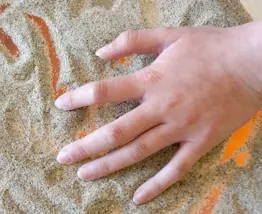What is Cognitive Processing Therapy (CPT)?

In the realm of trauma recovery, Cognitive Processing Therapy (CPT) emerges as a beacon of hope, empowering clinicians to support individuals struggling with the aftermath of traumatic experiences. Developed by Dr. Kathleen Chard and colleagues, CPT is firmly rooted in cognitive theory and aims to challenge and restructure maladaptive beliefs associated with trauma. Below, we delve into the core principles and techniques of CPT, shedding light on its effectiveness and benefits in helping individuals navigate their trauma recovery journey.
What are the foundational principles of Cognitive Processing Therapy?
The foundational principle of CPT lies in cognitive theory. It recognizes that traumatic experiences can lead to distorted thoughts and beliefs, impacting an individual's emotional well-being and daily functioning. CPT seeks to address these cognitive distortions and replace them with healthier, more adaptive beliefs through a narrative setting that focuses on the human connection between the client and therapist while working on the 5 key areas impacted by PTSD.What are the core treatment goals of CPT?
CPT's primaty goals are to:- Facilitate cognitive restructuring: Challenging and modifying negative thought patterns and beliefs related to traumatic experiences.
- Create emotion regulation: Helping individuals process and integrate traumatic memories and emotions.
- Foster trauma resolution: Assisting clients in finding a sense of closure and acceptance regarding their past traumatic events.
How does CPT work in trauma treatment?
CPT employs a structured and time-limited treatment approach. Clients typically attend 12 sessions, each lasting around 60-90 minutes. During sessions, the therapist and client collaboratively explore the client's traumatic experiences and identify related cognitive distortions ., or maladaptive, negative thoughts. Through Socratic questioning and guided discussions, clients learn to challenge and reframe these maladaptive beliefs, promoting emotional healing and recovery.What are the techniques used in Cognitive Processing Therapy?
The key technique in CPT is cognitive restructuring, where clients learn to identify and challenge cognitive distortions, such as self-blame or negative views of the world. Additionally, CPT may include exposure techniques, where individuals engage in writing about their traumatic experiences to facilitate emotional processing.Who can benefit from Cognitive Processing Therapy?
CPT is effective for your clients in treating trauma-related conditions, particularly PTSD with symptoms including but not limited to nightmares and flashbacks. It has also shown positive outcomes in individuals with other psychological challenges, such as depression, anxiety, and substance abuse, especially when these conditions co-occur with trauma.How does CPT compare to other trauma-focused therapies?
CPT shares similarities with other trauma-focused therapies, such as prolonged exposure (PE) and eye movement desensitization and reprocessing (EMDR), as they all address traumatic memories and cognitive processing. However, CPT differs in its emphasis on cognitive restructuring and does not involve exposure techniques as extensively as PE and EMDR.What are the advantages of using Cognitive Processing Therapy on clients needing trauma treatment?
The benefits of using CPT on clients include:- Strong empirical support: CPT has been extensively researched and shown to be effective in treating trauma-related conditions.
- Time-limited and structured: CPT offers a structured treatment approach, making it accessible and effective within a defined timeframe.
- Versatility: While designed for trauma treatment, CPT can be adapted to address other mental health challenges.
Cognitive Processing Therapy (CPT) Videos with Dr. Kate Chard

To help you learn more about Cognitive Processing Therapy (CPT), we’ve enlisted the help of Dr. Kathleen M. Chard, a co-developer of CPT. In the videos below, Dr. Chard walks you step-by-step through exactly what you need to know to make CPT therapy successful with your clients from start to finish.
Cognitive Processing Therapy (CPT) Trainings

For the first time ever, Dr. Kate Chard, PhD and co-developer of Cognitive Processing Therapy, has recorded her official 2-day training – the one she has taught to thousands of clinicians internationally and at the US Department of Veterans Affairs – in a convenient on-demand format. Through this training, you'll discover a new way to treat trauma that gets started in the very first session.
Register today, and you’ll not only get LIVE Q&A calls with Dr. Kate Chard but also a copy of the Cognitive Processing Therapy Treatment Manual, FREE!
Register today, and you’ll not only get LIVE Q&A calls with Dr. Kate Chard but also a copy of the Cognitive Processing Therapy Treatment Manual, FREE!





